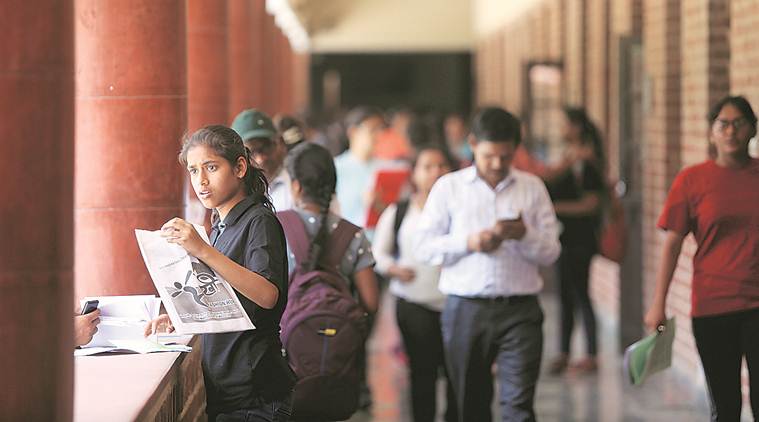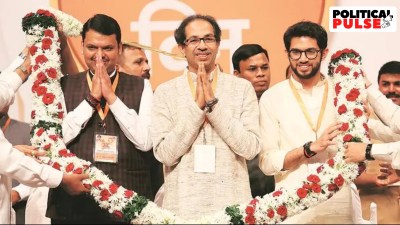- India
- International
New Education Policy 2020: Doors open for foreign universities; 4-year UG with exit option, flexible Master’s
The government's position on foreign universities effectively reverses the BJP's earlier stand on The Foreign Educational Institutions (Regulation of Entry and Operations) Bill, 2010, brought by the UPA-2 government.
 The new National Education Policy (NEP) states that the world’s top 100 universities will be “facilitated” to operate in the country through a new law.
The new National Education Policy (NEP) states that the world’s top 100 universities will be “facilitated” to operate in the country through a new law.
New Education Policy 2020: Paving the way for foreign universities to set up campuses in India, the new National Education Policy (NEP) states that the world’s top 100 universities will be “facilitated” to operate in the country through a new law. The Union Cabinet approved the NEP on Wednesday.
The government’s position on foreign universities effectively reverses the BJP’s earlier stand on The Foreign Educational Institutions (Regulation of Entry and Operations) Bill, 2010, brought by the UPA-2 government.
A major criticism of allowing foreign universities to operate in India at the time was that they would raise the cost of education through higher tuition fees and poaching of faculty from public universities, and put it out of the reach of a large section of the population.
“A legislative framework facilitating such entry (of foreign universities) will be put in place, and such universities will be given special dispensation regarding regulatory, governance, and content norms on par with other autonomous institutions of India,” the new policy says.
The NEP cleared by the Cabinet is only the third major revamp of the framework of education in India since independence. The two earlier education policies were brought in 1968 and 1986.

Besides opening up Indian higher education to foreign players, the new policy marks a significant shift in the format of undergraduate education with the reintroduction of the four-year multidisciplinary Bachelor’s programme, with exit options.
While the traditional three-year BA, B.Sc, and B.Voc degrees will continue, under the four-year programme, students can exit after one year with a certificate, after two years with a diploma, and after three years with a Bachelor’s degree.
“The 4-year multidisciplinary Bachelor’s programme, however, shall be the preferred option since it allows the opportunity to experience the full range of holistic and multidisciplinary education in addition to a focus on the chosen major and minors as per the choices of the student,” the policy states.
The four-year programme “may also lead to a degree ‘with Research’ if the student completes a rigorous research project in their major area(s) of study”.
Higher education institutions will have the flexibility to offer different designs for Master’s programmes. Students with a three-year Bachelor’s degree can pursue a two-year Master’s programme, and for students with a four-year Bachelor’s degree with Research, there could be a one-year Master’s.
To enroll for a Ph.D, a Master’s degree or a 4-year Bachelor’s degree with Research shall be required. The M.Phil programme shall be discontinued.
The NEP also paves the way for a single overarching regulator for higher education, which will replace the University Grants Commission (UGC) and the All India Council For Technical Education (AICTE). The single regulator, called the Higher Education Commission of India (HECI), will have “four independent verticals” to carry out the functions of regulation, funding, accreditation, and setting standards for learning outcomes.
“The professional councils, such as the Indian Council for Agricultural Research (ICAR), Veterinary Council of India (VCI), National Council for Teacher Education (NCTE), Council of Architecture (CoA), National Council for Vocational Education and Training (NCVET) etc., will act as Professional Standard Setting Bodies (PSSBs),” the Ministry’s document says.
The policy proposes the phasing out of all institutions offering single streams (such as technical education) over time, and the system of affiliating colleges over 15 years.
All universities and colleges must aim to become multidisciplinary by 2040. Even engineering institutions, such as IITs, will be expected to move towards more holistic and multidisciplinary education with more arts and humanities. “Students of arts and humanities will aim to learn more science and all will make an effort to incorporate more vocational subjects and soft skills,” the document says.
The new policy talks about moving away “from high-stakes examinations towards more continuous and comprehensive evaluation” – this, even as a controversy rages over a direction by the union government to all higher education institutions to hold exams for final year students amidst the Covid-19 pandemic.
The NEP has also proposed the setting up of a National Research Foundation (NRF) with the mandate to create a conducive ecosystem for research through funding and mentoring.
Given the disruption caused by the Covid-19 pandemic and the overnight move to online classes, the policy has proposed the setting up of a National Educational Technology Forum (NETF), a platform for the free exchange of ideas on the use of technology to enhance learning, assessment, planning, administration, etc., for both school and higher education.
The NEP, which will replace the current policy that has been in place for 34 years now, is the product of extensive consultations with stakeholders across the country, Higher Education Secretary Amit Khare said.
“An important point is that there was a wide consultation process,” Khare said. “Just to give you an idea, through the MyGov platform we approached all the 2.5 lakh gram panchayats for their suggestions. We got the draft NEP translated into 22 languages, again there was widespread consultation. There was a dialogue with MPs, and there was a special meeting of the Central Advisory Board of Education (CABE) on May 21, 2019.”
Then, Khare said, “There was a special meeting of the Parliamentary Standing Committee on HRD in November. “So there has not only been wide consultation with the state governments, central ministries, and academia, but there has also been the involvement of the common people, what do they want to see in the education policy?”
Apr 20: Latest News
- 01
- 02
- 03
- 04
- 05





























